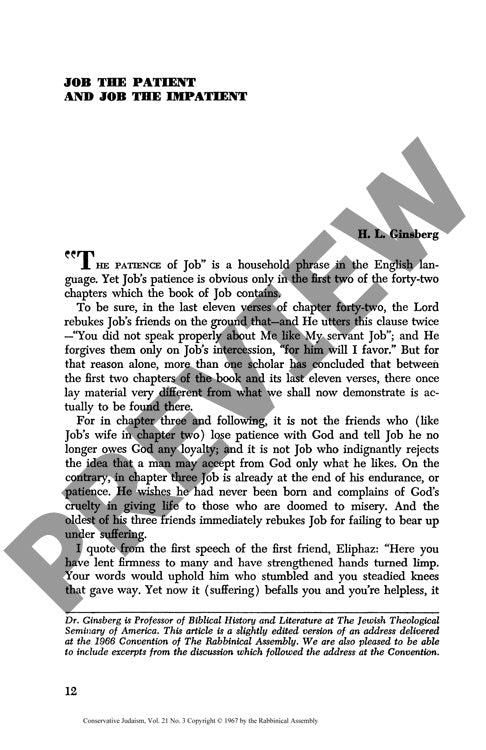Job the Patient and Job the Impatient
Couldn't load pickup availability
The Book of Job, long treated as a unified text, actually comprises two distinct literary works presenting radically different responses to human suffering. In the original "Patient Job" narrative, found in the opening chapters, concluding verses, and chapters 27-28, the protagonist maintains unwavering piety despite devastating losses, rejecting blasphemous counsel and ultimately receiving divine reward for his steadfast faith. Yet woven throughout chapters 3-42:6 emerges a second, more rebellious character - "Job the Impatient" - who boldly challenges traditional wisdom through celestial revelations while his companions defend orthodox retribution theology. Through close analysis of Hebrew texts, speech patterns, and displaced passages, particularly building on Tur-Sinai's scholarship, this research traces how these intertwined narratives develop through three dialogue cycles, each invoking different sources of knowledge and reaching opposing conclusions about divine justice. The sophisticated literary treatment of theodicy in Job the Impatient uses the framework of the patient Job tradition to interrogate conventional wisdom about suffering and retribution. These parallel texts ultimately represent two theological approaches to human anguish: patient acceptance grounded in traditional wisdom versus passionate questioning that demands divine explanation, both finally resolved through submission to divine authority without expectation of reward or understanding.

More Information
-
Physical Description
-
Publication Information
Published 1967
ISBN
-
Publication Credits
H. Ginsberg

